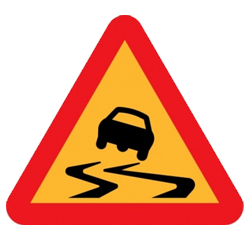When an individual decides to enter rehab, he or she is making a lifelong commitment to maintain sobriety. Once in rehab, substance abusers learn that recovery isn’t a destination, but a life-long journey, one that they must learn to navigate to avoid the danger of a relapse.
 The Relapse Process
The Relapse Process
The warning signs of a return to addiction can be better understood in the context of a relapse process, which usually begins inside the individual’s mind long before they actually relapse:
The individual stops making progress in recovery, which can happen they are faced with a challenge they feel unable or unwilling to deal with….
They then try to ignore the signs that they have stopped making progress…
The lack of progress begins to make life uncomfortable; the individual turns to poor coping mechanisms to deal with this…the frustration and internal discomfort continue to bubble away internally…
A trigger event provides the opportunity for this internal discomfort to rise to the surface.
 While it is true that medication during treatment can help reduce cravings and withdrawal, addiction recovery requires the rewiring of the brain and medication alone is not enough. Addiction is more than just physical dependence. Even after
While it is true that medication during treatment can help reduce cravings and withdrawal, addiction recovery requires the rewiring of the brain and medication alone is not enough. Addiction is more than just physical dependence. Even after  1. Don’t plan an intervention without a professional.
1. Don’t plan an intervention without a professional. High Risk of Addiction
High Risk of Addiction

